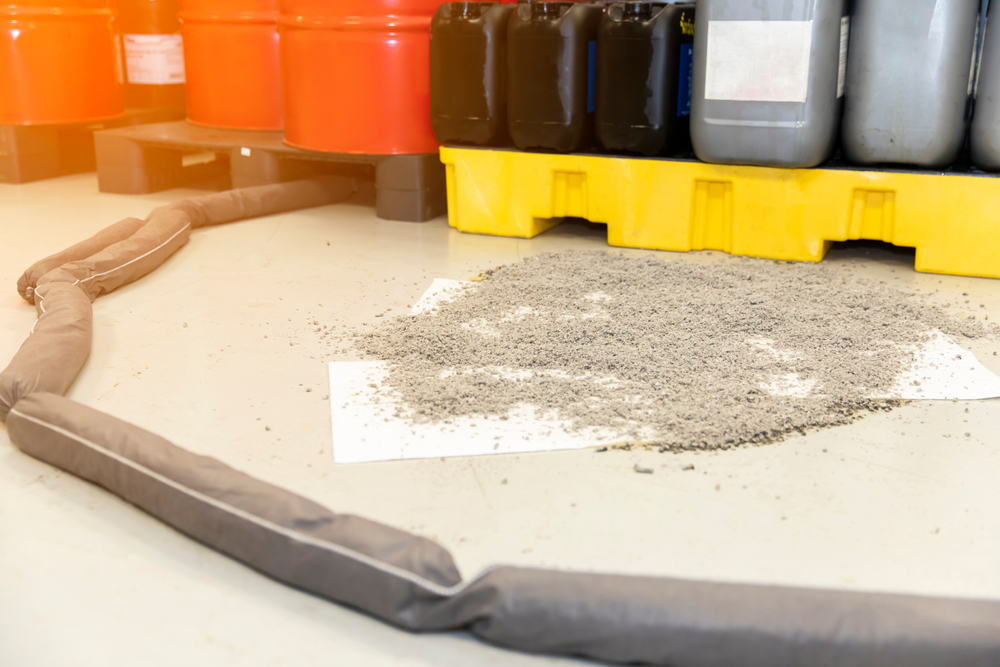Spill Reporting: A Comprehensive Guide

Spills of toxic chemicals and oils can happen in the workplace, even with preventative measures in place. Should a spill take place, spill reporting is essential for various reasons, including preventing it from recurring.
Here at Ecospill, we have a dedicated team that understands the importance of preventing and containing spills. In this article, we discuss the steps involved in spill reporting.
DUTY TO NOTIFY POLLUTION INCIDENTS
There is a duty to report any pollution incidents if it takes place or if you are engaged in an activity that leads to the incident on your property/at your workplace. Failure to do so can lead to an offence that may carry a fine. If the activity you undertake is licensed by the environmental protection agency (EPA), that license may have incident notification requirements.
The duty to notify applies to the following:
- The person carrying on the activity
- An employee or agent carrying on the activity
- An employer carrying on the activity
- The occupier of the premises where the incident occurs
CONTACT THE INDIVIDUAL OR GROUP RESPONSIBLE FOR THE SPILL
If the spill you witness is not life-threatening or a threat to any property, then contact the person or organisation responsible. If the area where the incident occurs is licenced by the EPA, then the organisation responsible is required to have a complaints line open. In some situations, immediate action may be taken on behalf of the organisation to prevent and contain the spill.
SPILL REPORTING TO THE RELEVANT AUTHORITIES
Reporting pollution incidents is vital for the response effort. By alerting the authorities, emergency services can respond to an incident before extensive damage occurs. The EPA is not responsible for all spill incident responses. In some situations, the local council might be your best option. When reporting, it is vital to include as much information as you can.
Below is a list of helpful information to add to your incident report.
- Who: Mention the names and details of those involved in the incident
- What: Explain what the issue is, for example, an oil spill
- When: The time and date of the incident and how long it lasted.
- Where: Provide the address or nearest reference to the incident
- How: Explain how the incident occurred and if anyone is hurt
- Evidence: Provide video or photo evidence in the report
MARINE POLLUTION REPORTING
Heavy shipping traffic and offshore drilling have resulted in oil spills and other chemicals polluting our oceans. If your business is related to harbour work or shipping vessels, then there is potential for a marine spill. You can submit an online marine pollution report, or call the incident response number. The Australian Maritime Safety Authority deals with the response to any oil spills or general marine pollution.
Below is a list of maritime pollution incidents that you should report:
- Spills or leaks of oil. You can usually see oil on the surface of the water
- Any discharge from a vessel involving chemicals or packaged goods.
- Garbage that has been disposed of in the sea, including plastics, papers, bottles, metal and general waste.
- The discharge of sewage effluent from ships and vessels.
HOW ECOSPILL CAN HELP
Pollution and spill incidents are a constant threat to the environment and in some cases, human life. If there is a life-threatening incident then call 000. If the spill is no immediate threat to human life or property, then you can attempt to contain the spill yourself using spill prevention equipment. By reporting to the relevant authorities, they can take immediate action to prevent and contain spills.
Here at Ecospill, we understand that the regulations surrounding oil pollution can change. Our experienced team ensures our products are up to date with regulatory standards. From spill kits to spill training, Ecospill has everything you need for preventing and containing oil spills.
Contact us to find out how Ecospill can help
